If you are in the market for a new or used Tesla, you probably have several questions about charging. This will be especially true if you are used to being able to drive into any gas station and fill your tank.
The most common question future Tesla owners ask is, “How long will it take to charge my Tesla?” While you’d think there would be a simple answer, like “10 hours”. The true answer is it depends on your battery size, which charger you are using, how much charge you need,, and even the temperature.
Here are the main charging-time factors you should know:
Tesla’s Battery Size Determines the Time it Takes to Charge
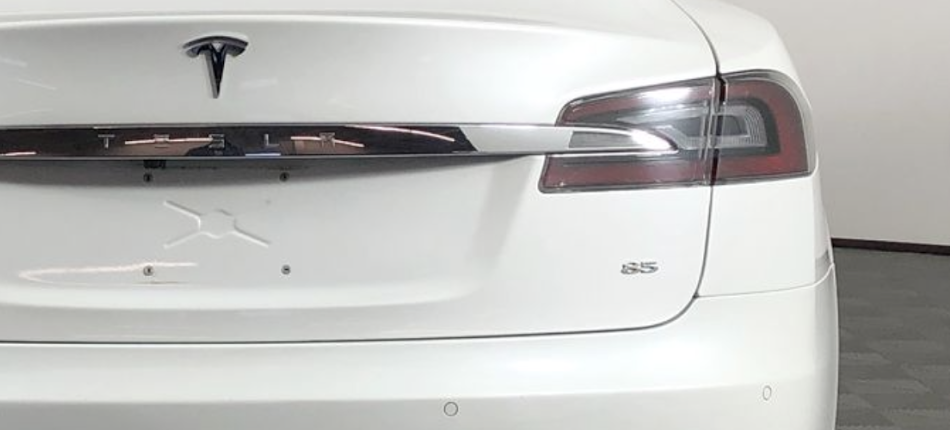
Historically speaking, Teslas have come with several different-sized batteries. Battery sizes are listed in kilowatt-hours (kWh) and, generally, Tesla batteries range from 60 kWh to 100 kWh. The size of a Tesla’s battery doesn’t only affect the range, it also determines how long it takes to charge. Obviously, a larger battery takes longer to charge.
Older Tesla S models have the battery size listed on the back—like in the photo above. After 2018, Tesla battery sizes are not as simple to find. The easiest way to find the battery size is to look at the frame behind the passenger front tire. There you may find a sticker identifying what battery has been installed on your Tesla. If you are going to buy a new Tesla, the battery sizes are listed on our 2023 Tesla Buyer guides.
The simple, crude way to determine how long it may take to charge a specific Tesla battery is to take the kWh battery size and divide it by the kW output of the charger.
For example, a standard Level 2 Charger has a charge output of approximately 9.6 kW. Therefore if you take the 100 kWh battery size of a Model X and divide it by 9.6 kW, you will get 10.42 hours to fully charge the battery from 0 to full.
How Long Does it Take to Charge a Tesla at Home?
The type of home charger you’re using is the number one factor in your charge time at your home. This is because charging an electric car isn’t as easy as plugging it into your wall outlet like an iPhone 14.
Tesla Mobile Connector [13-59 hours]

Well, actually it is… or can be. However, it will take nearly three days (59 hours) to charge a fully drained 100 kWh Tesla battery with a Tesla Mobile Connector plugged into a standard 120 amp outlet. This is because the Tesla Mobile Connector charges at the dismal rate of 1.7 kW when plugged into a standard 120 amp outlet.
If you swap out the plug to a 14-50 adapter and plug into a 240 amp circuit (like a dryer plug) you can charge your Tesla at the rapid rate of 7.6 kW and achieve a full charge in just over 13 hours.
Tesla Wall Connector [9 hours]
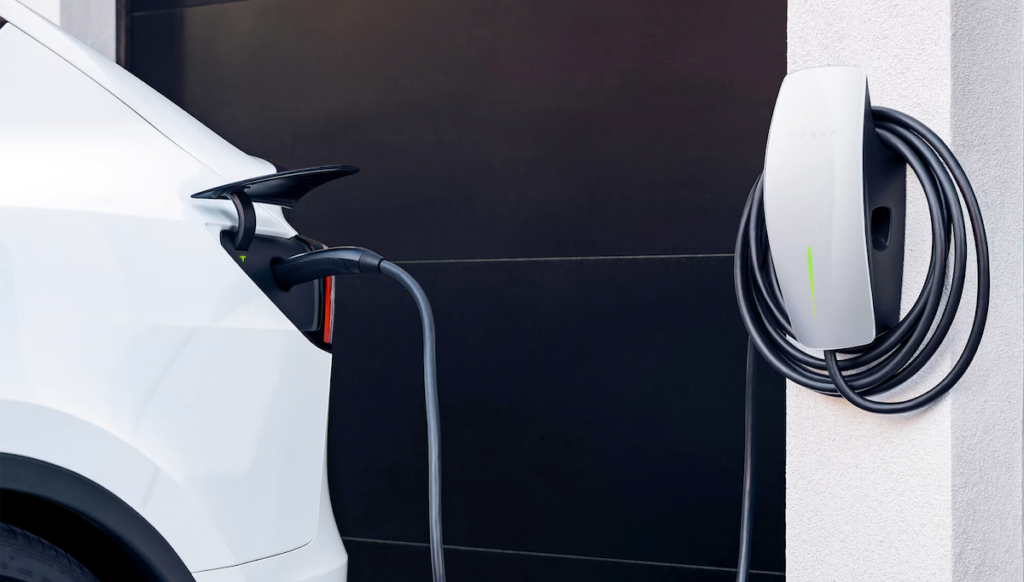
If you choose to upgrade your home with a Tesla Wall Connector you will be able to deliver electrons at 11.5 kW and easily fully charge your Tesla overnight or in about 9 hours. To achieve this rate of charge, the Tesla wall connector will need to be professionally installed by an electrician and your home’s electrical system will need to be able to support the additional electrical load.
How Long Does it Take to Change a Tesla on the Go?
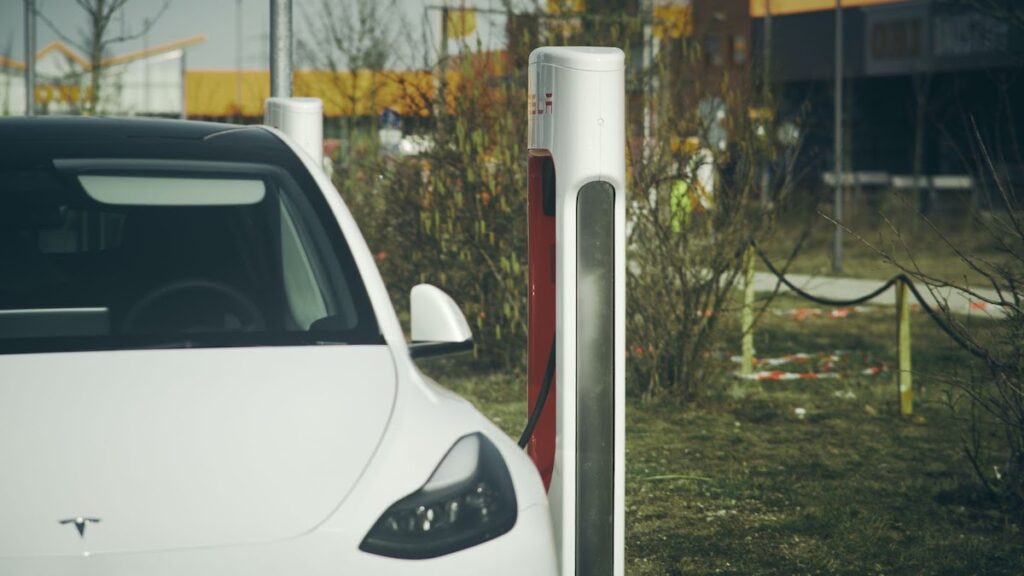
When you are charging your Tesla on the road you will mainly be using the Tesla charging stations. With over 45,000 chargers nationally, there are more Tesla chargers than any other electric car chargers in the U.S.
When you are out and about, you’re probably not concerned with how long it takes to charge your Tesla to full. Ain’t nobody got time for that! You just need to collect enough energy to get to your Tesla to your next destination. For this reason, Tesla owners will refer to charging time in a “charge time per mile” when out of the house. Like, “10 minutes for 100 miles of range”.
Tesla Supercharger [15 Minutes for 200 Miles]
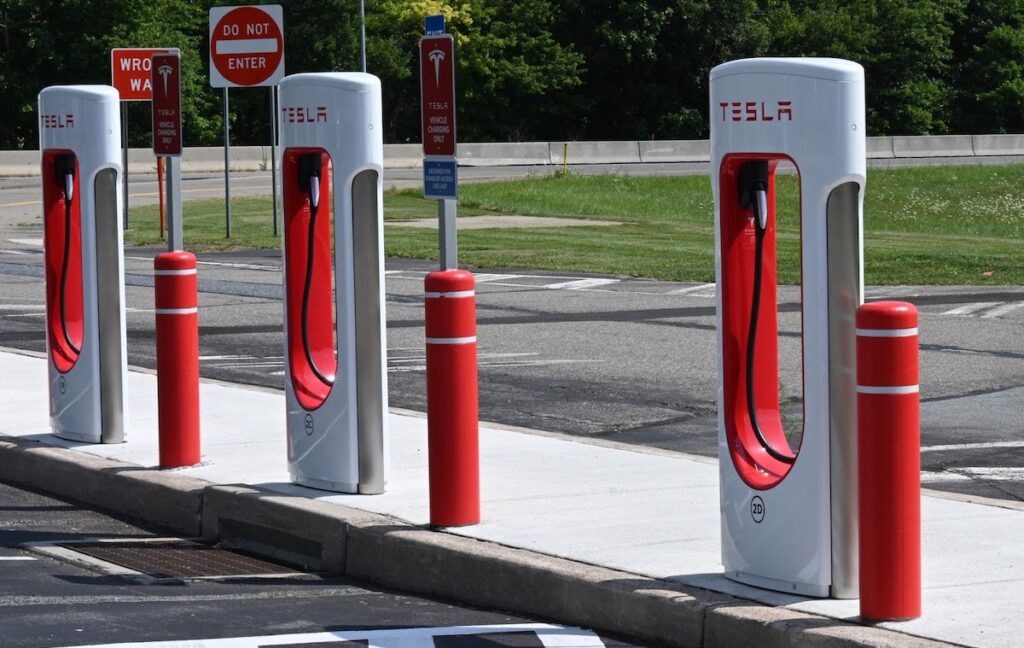
The latest Tesla Supercharger network can charge your baby in about 15 minutes. But before you get excited about filling your Tesla in about the same time it takes to listen to the extended version of “All Too Well”, you must know that there are some qualifications to reach that charging speed.
For one, your Tesla must go through a preconditioning phase prior to the charge. This can be done in advance by turning on the setting prior to charging. Fortunately, the car can be driven while preconditioning.
Next, your Tesla must be able to charge at the maximum charge rate of 250 kW. Tesla Model 3 and Ys are all rated for 250 kW. However, Teslas built prior to 2018 and even some Model S and Xs built after 2018 are limited to a maximum charge rate of 150 kW.
Not to worry though, at 150 kW you can still add 200 miles of range to your Tesla in about 25 minutes!
Other Public EV Chargers [15 Minutes for 200 Miles]

While government incentives abound, there are many new public charging options showing up every day. Some of these chargers are boasting that they can charge at blistering speeds exceeding 350 kW!
While these options are great, all new Teslas are currently limited to a maximum charge rate of 250 kW. This means that despite the charger being more powerful, It will still take 15 minutes to deliver your Tesla 200 miles of range.
Outdoor Temperature
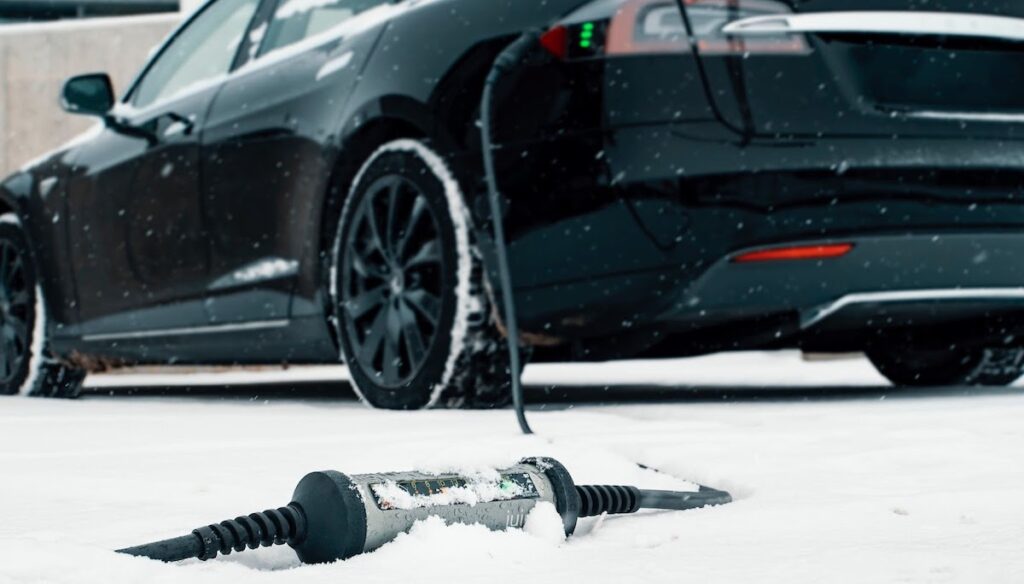
The last factor that affects the charge time in your Tesla is temperature. Batteries operate best between 60-80 degrees farenheit. In extreme heat (above 100°) or freezing temperatures (below 32°) the onboard battery management systems (BMS) will limit the charging rate to avoid damage to the battery.
Studies have shown that the charge rate can be reduced by as much as 36% in extreme temperatures. So if you live in an extreme climate area you will want to keep this in mind when charging your Tesla.
Final Thoughts
When Teslas were first introduced, getting stuck at your local grocery store for 4 hours while waiting for enough charge to get home was a real possibility. Now, with larger batteries and plentiful Tesla Superchargers, this has become a thing of the past.
The truth is that most Americans travel less than 40 miles a day and the average Tesla today has 300 miles of range and can recharge in just a few hours each night. Your chances of being marooned at the local market are now pretty slim.


Leave a Reply